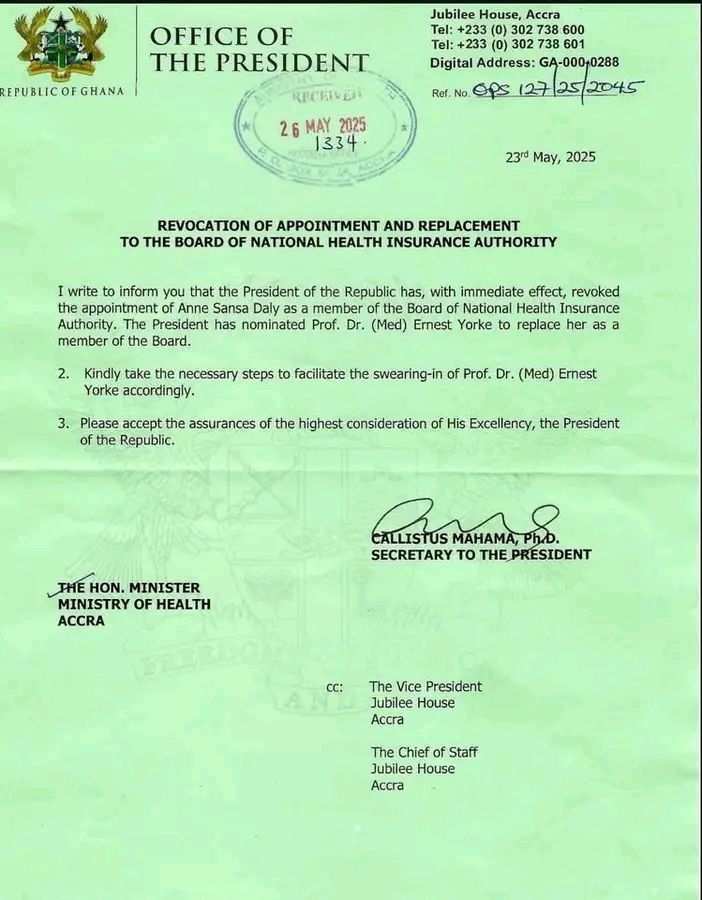President John Dramani Mahama has revoked the appointment of Anne Sansa Daly from the Board of the National Health Insurance Authority (NHIA) and nominated renowned medical expert Prof. Dr. (Med) Ernest Yorke as her replacement. The move, announced on May 23, 2025, follows growing public scrutiny over Daly’s professional background.
A letter signed by Secretary to the President, Callistus Mahama, confirmed the revocation and instructed relevant bodies to take steps for the immediate swearing-in of Dr. Yorke. Though no specific reason was cited in the official communication, the decision comes after widespread concern over Daly’s purported medical qualifications, which many questioned due to the absence of valid medical licensing credentials.

Prof. Dr. Yorke, who currently serves as Vice President of the Ghana Medical Association (GMA), is a seasoned medical professional and health policy advocate. His appointment is widely seen as a step toward restoring public trust in the governance of Ghana’s health insurance system.
The National Health Insurance Authority Board is responsible for shaping policy and ensuring transparency and efficiency in the delivery of health insurance services across Ghana. This leadership change is expected to reinforce the board’s credibility and commitment to professional standards.
Dr. Yorke’s appointment has already received positive reactions from healthcare professionals and civil society, with many praising the President for acting swiftly to uphold integrity in public health administration.

